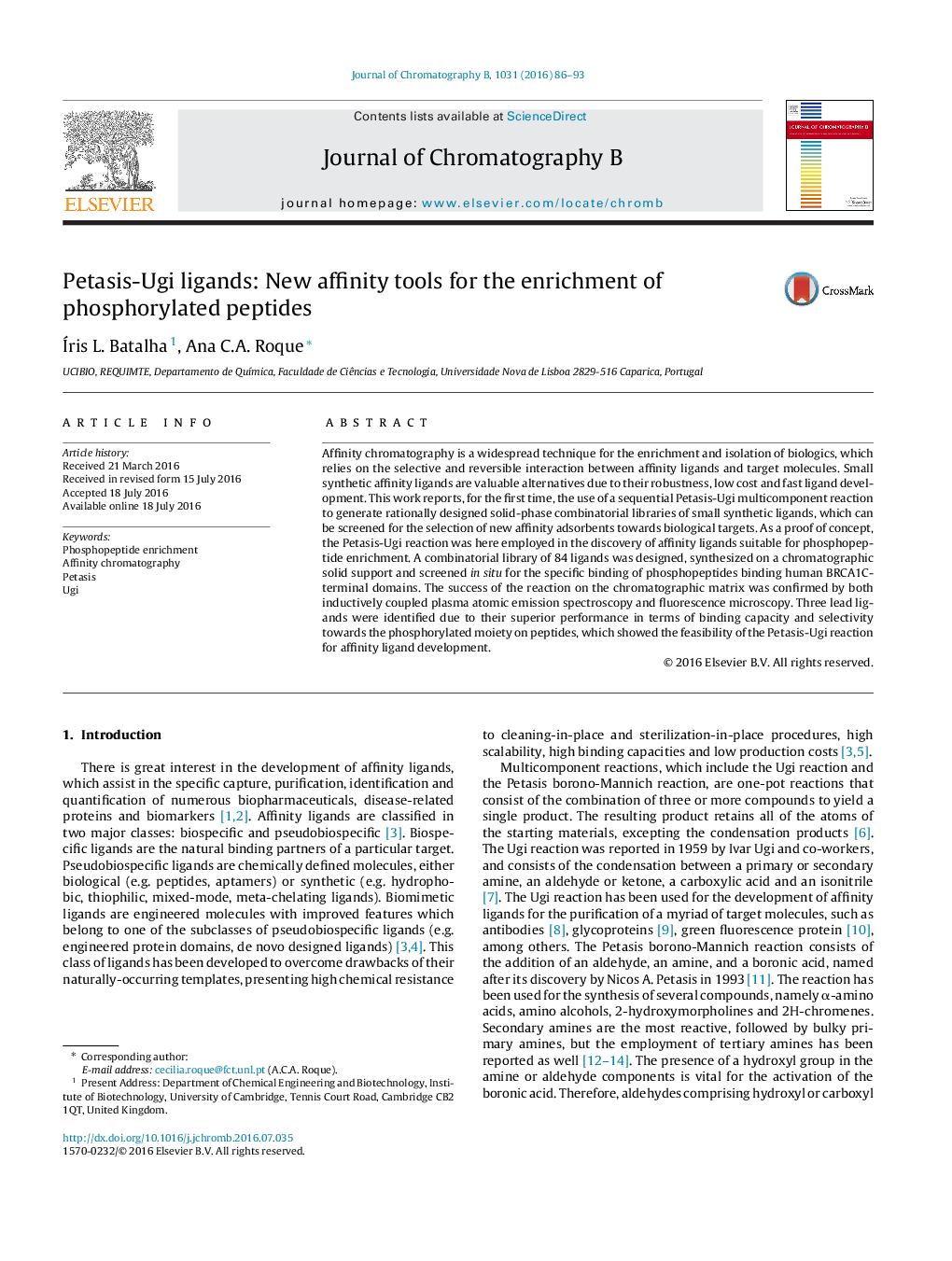| Article ID | Journal | Published Year | Pages | File Type |
|---|---|---|---|---|
| 1212593 | Journal of Chromatography B | 2016 | 8 Pages |
•Development of novel affinity ligands based on a sequential Petasis-Ugi reaction.•Petasis-Ugi combinatorial library mimicking human phosphoprotein-binding domains.•Lead ligands composed of Ser, Tyr and/or Phe mimetic components.
Affinity chromatography is a widespread technique for the enrichment and isolation of biologics, which relies on the selective and reversible interaction between affinity ligands and target molecules. Small synthetic affinity ligands are valuable alternatives due to their robustness, low cost and fast ligand development. This work reports, for the first time, the use of a sequential Petasis-Ugi multicomponent reaction to generate rationally designed solid-phase combinatorial libraries of small synthetic ligands, which can be screened for the selection of new affinity adsorbents towards biological targets. As a proof of concept, the Petasis-Ugi reaction was here employed in the discovery of affinity ligands suitable for phosphopeptide enrichment. A combinatorial library of 84 ligands was designed, synthesized on a chromatographic solid support and screened in situ for the specific binding of phosphopeptides binding human BRCA1C-terminal domains. The success of the reaction on the chromatographic matrix was confirmed by both inductively coupled plasma atomic emission spectroscopy and fluorescence microscopy. Three lead ligands were identified due to their superior performance in terms of binding capacity and selectivity towards the phosphorylated moiety on peptides, which showed the feasibility of the Petasis-Ugi reaction for affinity ligand development.
